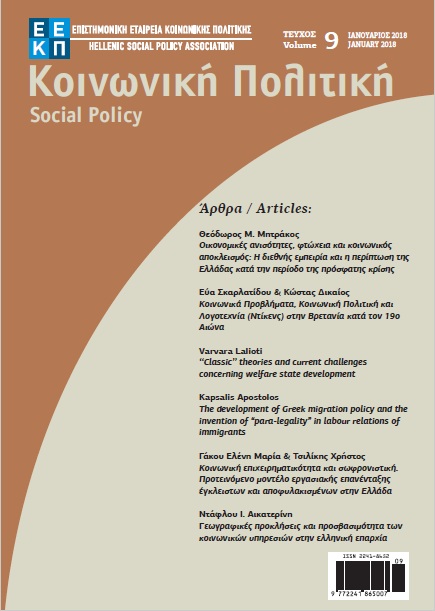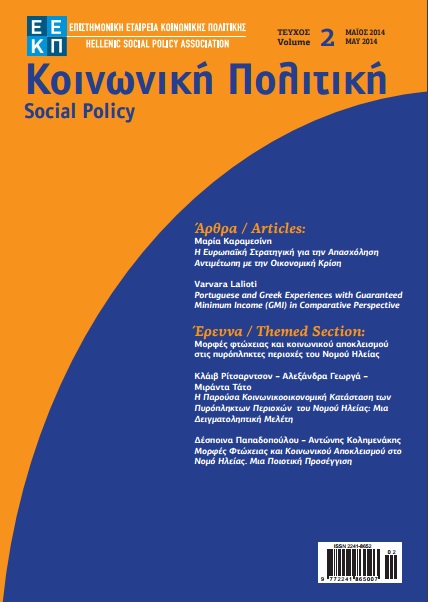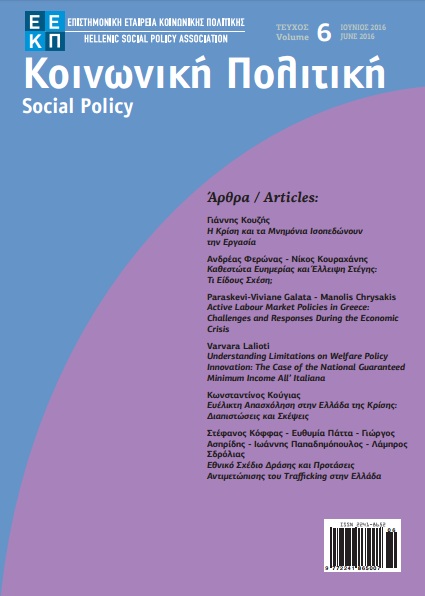‘‘Classic’’ theories and current challenges concerning welfare state development
Abstract
The aim of the present article is to provide the reader with a bird’s-eye view of 'classic' theories concerning welfare state development, whilst also stressing the need for social policy to address current challenges faced by the welfare state, and thus 'transform' old theories in accordance with new research directions. The first part of the article provides a succinct critical examination of 'classic' theoretical approaches. These include industrialism, power resource theory, historical institutionalism, national values, business power, but also the broader trend of classifying welfare states that drew on features of the aforementioned approaches and introduced new variables such as gender. The second part of the article is devoted to powerful contemporary challenges for the welfare state, such as migration and growing ethnic diversity, neoliberal globalization and the recent crisis, as well as changing gender roles. It is argued that these challenges give rise to key questions for the field of social policy and test the limits of traditional assumptions for the welfare state. This part asks for a fruitful dialogue between the old and something newer that is needed to complement it. Such a dialogue is a prerequisite for rigorous and sophisticated social policy research. The article’s concluding section summarizes the findings.
Article Details
- Come citare
-
Lalioti, V. (2018). ‘‘Classic’’ theories and current challenges concerning welfare state development. Κοινωνική Πολιτική, 9, 47–66. https://doi.org/10.12681/sp.15985
- Fascicolo
- V. 9 (2018)
- Sezione
- Άρθρα

TQuesto lavoro è fornito con la licenza Creative Commons Attribuzione 4.0 Internazionale.
Οι συγγραφείς των άρθρων που δημοσιεύονται στο περιοδικό διατηρούν τα δικαιώματα πνευματικής ιδιοκτησίας επί των άρθρων τους, δίνοντας στο περιοδικό το δικαίωμα της πρώτης δημοσίευσης. Άρθρα που δημοσιεύονται στο περιοδικό διατίθενται με άδεια Creative Commons 4.0 και σύμφωνα με την άδεια μπορούν να χρησιμοποιούνται ελεύθερα, με αναφορά στο/στη συγγραφέα και στην πρώτη δημοσίευση για μη κερδοσκοπικούς σκοπούς και με δικαίωμα τροποποίησης μόνον με παρόμοια διανομή (αν αναμείξετε, τροποποιήσετε, ή δημιουργήσετε πάνω στο υλικό, πρέπει να διανείμετε τις δικές σας συνεισφορές υπό την ίδια άδεια όπως και το πρωτότυπο).





